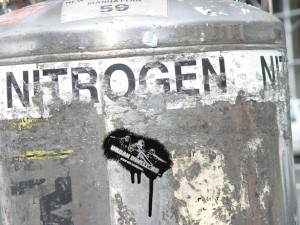Whenever a worker is killed on the job, the employer is required to notify the U.S. Occupational Safety and Health Administration (OSHA) within eight hours, so the agency can conduct a full investigation into the cause of the worker’s death. If the worker was found to have died as a result of a safety violation, the agency can assess fines against the employer. If there was something that could have been done in a safer manner, but it was a not a regulatory violation, they can make recommendations and work to change the regulations in the future.
 If the agency finds other safety violations, the agency can issue warnings and fines, even if those violations did not result in the death of the worker. In addition to when a worker is killed, OSHA must be notified within 24 hours of a serious workplace accident that results in an amputation, hospitalization, or loss of vision in at least one eye. This is also so OSHA can conduct a full investigation into the cause of the accident.
If the agency finds other safety violations, the agency can issue warnings and fines, even if those violations did not result in the death of the worker. In addition to when a worker is killed, OSHA must be notified within 24 hours of a serious workplace accident that results in an amputation, hospitalization, or loss of vision in at least one eye. This is also so OSHA can conduct a full investigation into the cause of the accident.
According to a recent news article from the Boston Globe, a worker was killed when he was exposed to ammonia fumes at a local seafood processing company located in Boston, and following their investigation, OSHA has found the company liable for 20 serious safety violations. In addition to their findings of violations, OSHA has assessed what are known as preliminary fines in the amount of more than $170,000.
As for the cause of the worker’s death, OSHA found it was due to a catastrophic release of ammonia due to the failure to follow industrial standards. The agency stated the company must find a way to deal with ammonia in the future in such a way that does not result in another worker being exposed to deadly amounts of fumes again. In this accident, there was a pipe in the company’s cold storage facility that burst. When the pipe burst, ammonia was sprayed into the air at a significant rate, causing deadly fumes that the worker inhaled. The agency found that it was due to lack of maintenance in the cold storage facility that allowed the pipe to deteriorate to the point where it eventually failed, thus killing this worker. It should be noted that the employer has the opportunity to challenge the results of OSHA’s investigation, or choose to settle at a lower amount of fines without admitting responsibility, as is often the case.
As you can discuss with your Boston workers’ compensation attorney, in the event of a deadly workplace accident, the family of the decedent can still file a workers’ compensation claim asking for what is known as a death benefits award. This can include the cost of past medical expenses related to the cause of death, funeral expenses, and a claim for lost wages. A lost wages claim is to compensate the surviving spouse or children for the amount of money that employee would have earned had he or she not been killed in a workplace accident.
If you or someone you love has been injured a Boston work accident, call for a free and confidential appointment at (617) 777-7777.
Additional Resources:
OSHA finds 20 ‘serious’ violations at plant where worker died, September 30, By John R. Ellement and Travis Andersen, 2016, Boston Globe
More Blog Entries:
Parr v. Breeden – Supervisor Co-Workers Not Liable Under Workers’ Comp Exclusive Remedy, July 3, 2016, Boston Work Accident Lawyer Blog
 Massachusetts Workers Compensation Lawyers Blog
Massachusetts Workers Compensation Lawyers Blog

